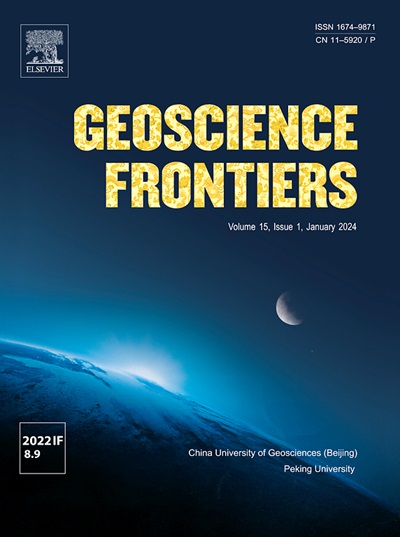能源强度、资源丰富和不平等是否导致了能源贫困?来自发展中国家的证据
IF 8.9
1区 地球科学
Q1 GEOSCIENCES, MULTIDISCIPLINARY
引用次数: 0
摘要
发展中国家的能源贫困是一个关键问题,其特点是无法获得电力和清洁烹饪设施等现代能源服务,这是可持续发展目标7的标志。本研究探讨了能源贫困、能源强度、资源丰富度和收入不平等之间的相关性,因为这些因素在影响发展中国家的能源贫困方面发挥了重要作用。通过观察数据集在不同国家和时间框架内的异质性,我们使用矩分位数回归(MMQR)方法分析了2000年至2019年发展中国家的数据。我们的研究结果表明,能源强度是影响能源贫困的一个重要因素,这表明相对于样本国家而言,较高的能源消耗会加剧这一问题。此外,我们观察到样本国家内部的收入不平等是能源贫困水平的关键决定因素,突出了经济差距与能源资源获取之间的动态关系。有趣的是,我们的研究表明,就能源贫困而言,资源丰富是一种祝福,而不是诅咒,这意味着自然资源丰富的国家可能有更好的机会对抗能源匮乏。最后,我们强调金融市场在解决全球能源贫困方面的重要作用,表明健全的金融体系可以促进旨在改善弱势群体能源获取的投资和创新。鲁棒性结果支持主估计的实证结果。本研究的实证结果为决策者采取能源政策解决能源贫困的复杂挑战和促进包容性能源获取提供了重要的理解。本文章由计算机程序翻译,如有差异,请以英文原文为准。

Do energy intensity, resource abundance and inequality drive energy poverty? Evidence from developing countries
Energy poverty in developing countries is a critical issue characterized by the lack of access to modern energy services, such as electricity and clean cooking facilities, as marked in SDG 7. This study explores the correlations between energy poverty, energy intensity, resource abundance, and income inequality, as these factors have been theorized to play important roles in influencing energy poverty in developing countries. By observing that the dataset is heterogeneous across the countries and over the time frame, we use the Method of Moments Quantile Regression (MMQR) to analyze our developing countries’ data from 2000 to 2019. Our findings indicate that energy intensity is a significant factor influencing energy poverty, suggesting that higher energy consumption relative to the sample countries can exacerbate this issue. Additionally, we observe that income inequality within the sample countries is a critical determinant of energy poverty levels, highlighting the dynamics between economic disparity and access to energy resources. Interestingly, our study reveals that resource abundance acts as a blessing rather than a curse in terms of energy poverty, implying that countries rich in natural resources may have better opportunities to combat energy deprivation. Finally, we emphasize the vital role of financial markets in addressing energy poverty on a global scale, suggesting that robust financial systems can facilitate investments and innovations aimed at improving energy access for vulnerable populations. The results from the robustness supports the empirical results obtained from the main estimation. The empirical findings of the present study advance important comprehensions for policymakers to adopt energy policies that address the complex challenges of energy poverty and promote inclusive energy access.
求助全文
通过发布文献求助,成功后即可免费获取论文全文。
去求助
来源期刊

Geoscience frontiers
Earth and Planetary Sciences-General Earth and Planetary Sciences
CiteScore
17.80
自引率
3.40%
发文量
147
审稿时长
35 days
期刊介绍:
Geoscience Frontiers (GSF) is the Journal of China University of Geosciences (Beijing) and Peking University. It publishes peer-reviewed research articles and reviews in interdisciplinary fields of Earth and Planetary Sciences. GSF covers various research areas including petrology and geochemistry, lithospheric architecture and mantle dynamics, global tectonics, economic geology and fuel exploration, geophysics, stratigraphy and paleontology, environmental and engineering geology, astrogeology, and the nexus of resources-energy-emissions-climate under Sustainable Development Goals. The journal aims to bridge innovative, provocative, and challenging concepts and models in these fields, providing insights on correlations and evolution.
 求助内容:
求助内容: 应助结果提醒方式:
应助结果提醒方式:


